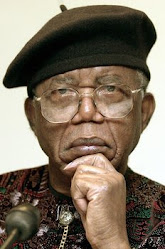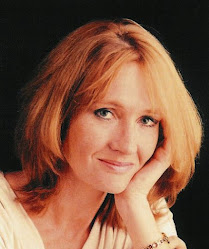
"
When I dare to be powerful - to use my strength in the service of my vision - it becomes less and less important whether I am afraid." That's a great quote from the late African-American author, Audre Lorde. She was a civil rights activist, a feminist, and a proud lesbian. She died in 1992 at the age of fifty-eight and it's fitting that Diriye opens his collection with a quote from her. The first short story in
Fairytales for Lost Children is
Watering the Imagination, a two-paged story in which a Muslim mother from Somalia reflects on her daughter's life and defends her daughter's right to live as she pleases.
Tell the Sun Not to Shine is the next story and it's a moving and memorable tale about a past lover. It's a loving flashback to what was and a piercing reminder of what can never be. I finished the story, paused, and then I read it again. The titular story
Fairytales of Lost Children comes next and I like it a lot.
A lot. It might be my favorite of the collection. Hirsi and his family fled Somalia and have started life afresh in Kenya but the move has them constantly looking over their shoulders in fear. The other stories in this collection are:
Shoga, If I Were a Dance, Pavilion, Ndambi, Earthling, Your Silence Will Not Protect You, The Other (Wo)man, and finally
My Roots Are Your Roots.
All of Diriye's protagonists are gay and lesbian except the mother in
Watering the Imagination. I haven't read any other African short story collection with this many gay characters and that's worth noting. I enjoyed the first four stories very much but I wasn't particularly fond of the remaining seven stories.
The Other (Wo)man shocked me (I'm probably easily shocked) as I read it on the bus while going home. It was the male equivalent of a pearl-clutching moment. Sometimes in short story collections you can pick up similarities in the various stories and sometimes they seem to reflect the author's personal experiences that are known to the reader. In this collection a lot of the protagonists have the similar backgrounds and characteristics - displaced from their home country, artistic in some fashion, having a Muslim heritage, being mentally ill - that seem more familiar with each subsequent story. Those characteristics and backgrounds are structural beams upon which each story in
Fairytales for Lost Children collection is built. Is that bad? No... I just had to point that out.
Diriye doesn't try to appeal to mainstream audiences by watering down the collections' homosexual content or by skimping on the details of sexual activity.
Fairytales of Lost Children is outlandish and bursting with a pride that cannot be stamped out. I love the collection's title a lot but not the book cover art. I'm certain that something more creative could have been conceived in its place. Regardless, this is very important work. Michael Jackson's song,
Lost Children played randomly in my head while I read this book. It's one of my favorite MJ songs and I think it's fitting too. This collection of short stories is for all the lost children out there, the LGBT family, especially those of African heritage. We're "
wishing them well and wishing them home" (italicized words are lyrics from Michael Jackson's song,
Lost Children). Kudos to Diriye Osman.
Image via [Amazon]
 Two years ago when I interviewed Ben Hinson for this blog he was still working on his novel "Eteka: Rise of the Imamba". His interview was one of the best interviews I've done for this blog. He shared his personal experiences, talked about this project and gave some advice to aspiring authors. Today, I'm very pleased to announce that his novel "Eteka: Rise of the Imamba" has been released! It's five hundred and sixty-four pages long and you can
Two years ago when I interviewed Ben Hinson for this blog he was still working on his novel "Eteka: Rise of the Imamba". His interview was one of the best interviews I've done for this blog. He shared his personal experiences, talked about this project and gave some advice to aspiring authors. Today, I'm very pleased to announce that his novel "Eteka: Rise of the Imamba" has been released! It's five hundred and sixty-four pages long and you can




















